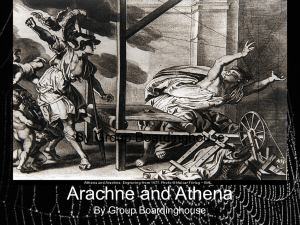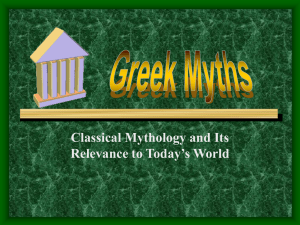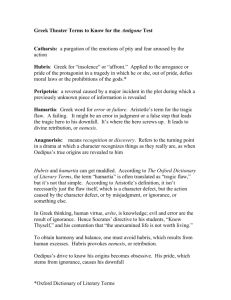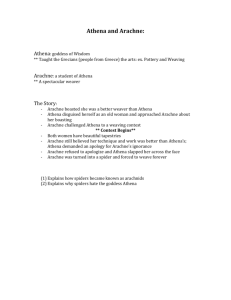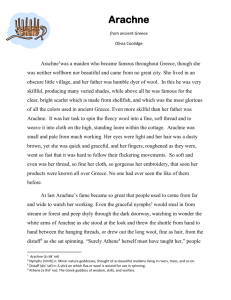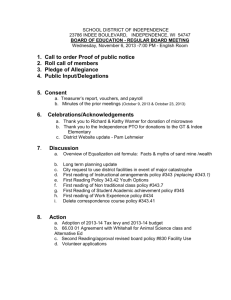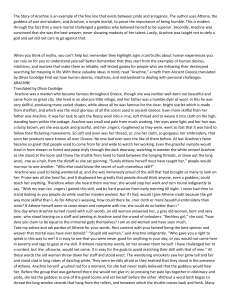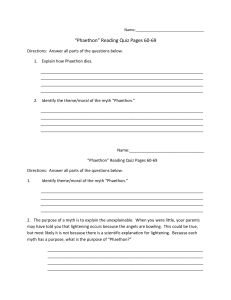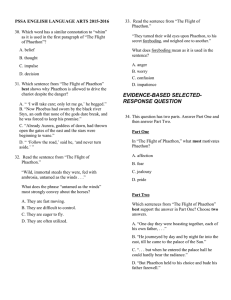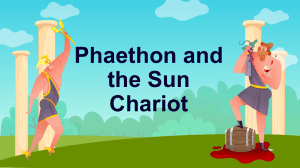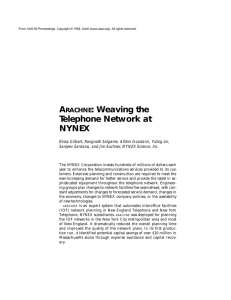Greek Myths
advertisement
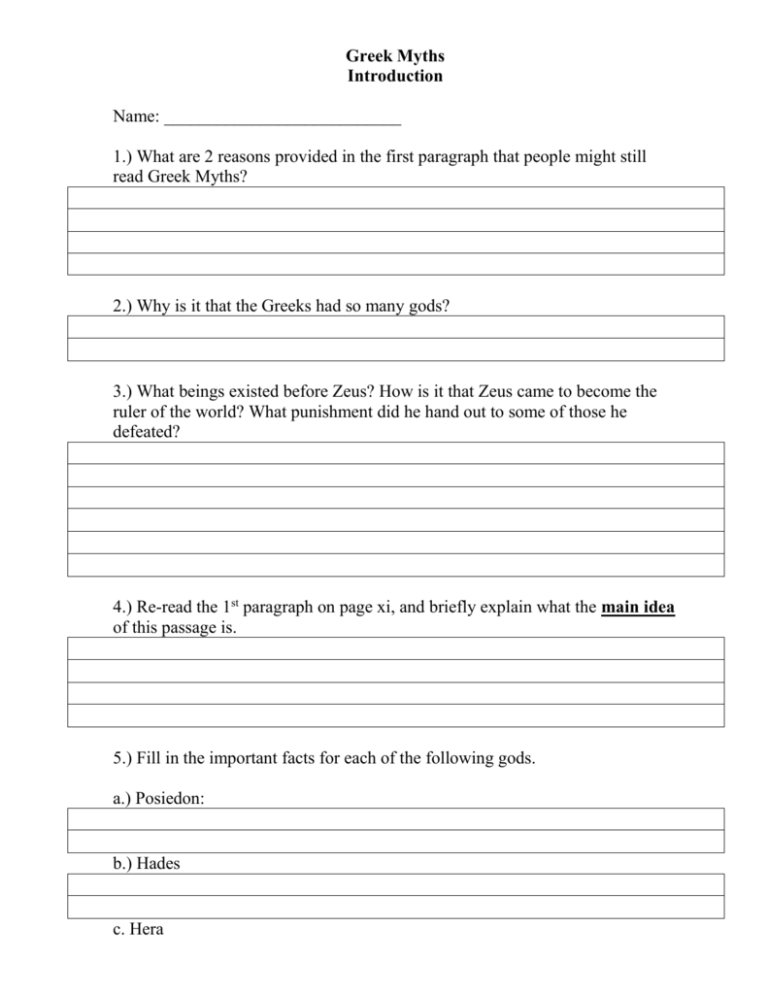
Greek Myths Introduction Name: ___________________________ 1.) What are 2 reasons provided in the first paragraph that people might still read Greek Myths? 2.) Why is it that the Greeks had so many gods? 3.) What beings existed before Zeus? How is it that Zeus came to become the ruler of the world? What punishment did he hand out to some of those he defeated? 4.) Re-read the 1st paragraph on page xi, and briefly explain what the main idea of this passage is. 5.) Fill in the important facts for each of the following gods. a.) Posiedon: b.) Hades c. Hera d. Aphrodite e. Apollo f. muses g. Artemis h. Athene i. Ares j. Hephaistos k. Hermes Three Stories that Explain the Origins of Various Things i.) The Trickery of Hermes – pg. 3 ii.) The Spring Flowers – pg. 58 iii.) Eternal Youth – pg. 62 Name: ____________________________ Due Next Class! – Value = 10pts. 1.) Greek Myths often explain the origins of things that were common to the Ancient Greeks. How does each story explain the origin of various things? 2.) What do you learn about the character of Hermes through his story? List the character traits that he possesses and any other factual details that are explained. 3.) What lessons do “Spring Flowers” and “Eternal Youth” teach? How are the lessons they teach still important in our day and age? Explain. (use the back of this page if you need more space.) Phaethon Son of Apollo 1.) How does Phaethon show himself to be prideful, demanding and immature on pgs. 12 & 13? 2.) What does Phaethon ask from his father? How is this request unwise? What does it show about Phaethon’s character? 3.) Greek Myths were created in an attempt to inform humans about how they were supposed to relate to the gods and how they could best please them. They also often explain how things in nature came to be. Lastly, they teach lessons about how humans ought to behave. Often, the lesson they teach is that humans ought to be humble and that PRIDE is a sin that often has tragic consequences. a.) What natural things are explained in this myth? b.) In your own words, explain what it means to be humble. Provide an example from real life of being humble. “Pride goes before destruction, a haughty spirit before a fall.” – Proverbs 16:8 Proverbs 18:12 “Before his downfall a man's heart is proud, but humility comes before honor.” Proverbs 29:23 “A man's pride brings him low, but a man of lowly spirit gains honor.” c.) What do these sayings mean? And how do they support what happens in the story of Phaethon? Arachne 1.) Was Arachne deserving of admiration and adulation of people in the beginning of the story? Why? What made her such a standout? b.) Describe her looks and outline what made her such a standout in her field of work. 2.) “Praise was all she lived for…” (pg. 23) How is this a negative character trait? 3.) “With my own ten fingers I gained this skill, and by hard practice from early morning till night. I never had time to stand looking as you people do while another maiden worked.” (pg. 23) Do you think that Arachne had reason to be proud? Is she justified in being arrogant and prideful? Explain. 4.) Hubris is a term that you should definitely know as you continue your study of English literature. It has its roots in Greek Myths, but comes up in many, many stories, all the way from Sampson in the Bible to Shakespeare’s tragic plays. Hubris means excessive pride, self-confidence and arrogance that leads to the downfall of the character. a. How does Arachne’s HUBRIS lead to her fall? b. How is Arachne’s punishment fitting? 5.) What images do Athene and Arachne weave into their tapestry? What does this say about each of them? 6.) Do you think that Athene treated Arachne fairly? Why or why not?
